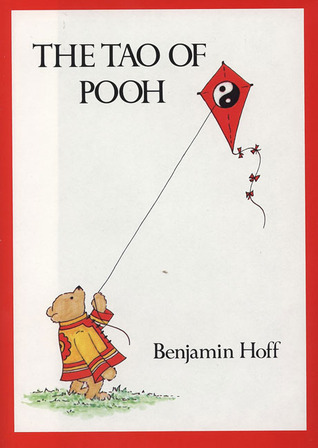About the Author
byThe Tao of Pooh begins with the author, Benjamin Hoff, offering a glimpse into his life, personality, and interests. Hoff, a writer from Oregon, describes himself as someone with a diverse range of passions, including writing, photography, music, and composing. He expresses a deep appreciation for nature, particularly forests and bears, and humorously reflects on his academic history, noting his degree in Asian Art but acknowledging that he hasn’t confirmed the specifics in quite some time. This self-reflection provides readers with a sense of Hoff’s lighthearted approach to life, where his professional and personal pursuits are intertwined with his affection for simplicity and natural beauty. His openness about his quirky and unverified academic background sets the tone for a relaxed yet thoughtful exploration of Taoism.
As the narrative unfolds, Hoff’s varied interests are revealed, ranging from serious practices like yoga and Tai Chi Ch’uan to more playful activities such as stunt kite-flying and boomerang shaping. These hobbies reflect his broad perspective on life, where serious philosophical contemplation and fun, spontaneous activities coexist harmoniously. Hoff presents these interests with humor and ease, emphasizing that both mindfulness and play are essential aspects of a balanced life. The spirit of Taoism is woven throughout these examples, where Hoff finds joy and wisdom not just in disciplined practices, but also in the simple and sometimes whimsical activities that bring him peace. Through these pursuits, Hoff illustrates the Taoist principle of living in alignment with the flow of life, where neither rigidity nor excess is necessary for fulfillment.
Hoff emphasizes a relaxed and simple approach to life, which is central to the philosophy he explores throughout the book. He openly admits to enjoying basic pleasures such as napping and lounging on the floor, further underscoring his belief in the value of simplicity. This philosophy aligns closely with the Taoist principles of spontaneity, harmony, and simplicity, which stress the importance of living in balance with nature and allowing life to unfold naturally. Hoff’s reflections on the world around him reveal a sense of contentment derived from embracing the present moment and accepting life without striving to control it. By presenting Taoism through his own experiences and observations, Hoff invites readers to consider how they might adopt a similar mindset of ease and joy in their daily lives, ultimately encouraging a deeper connection to both themselves and the world around them.
Throughout the chapter, Hoff also introduces his literary works, including “The Tao of Pooh” and “The Te of Piglet,” which explore the relationship between Taoism and A.A. Milne’s beloved characters. These books, through their playful and insightful storytelling, demonstrate how the principles of Taoism can be found in the simple yet profound actions of Pooh and his friends. Hoff encourages readers to reflect on these characters as examples of how one can live in harmony with nature and embrace life’s simple joys. By aligning the lessons of Taoism with the wisdom inherent in these childhood stories, Hoff offers a unique perspective on how philosophy can be applied to everyday life. He shows that deep understanding doesn’t necessarily require complex theories, but can instead be found in the innocence and spontaneity of the characters from the Hundred Acre Wood.
In conclusion, this chapter not only introduces Hoff’s personality and eclectic interests but also sets the stage for the central theme of the book: exploring Taoism through the lens of childhood stories and simple life lessons. The foundation for the rest of the book is established, where Hoff uses the adventures and wisdom of Pooh and his friends to illustrate Taoist concepts in a way that is accessible and relatable. Through Hoff’s engaging and humorous storytelling, readers are encouraged to reconsider their approach to life, embracing simplicity, spontaneity, and connection with the natural world. The Tao of Pooh thus offers an invitation to explore profound philosophical ideas while enjoying the simple pleasures of life, just as Pooh does.

